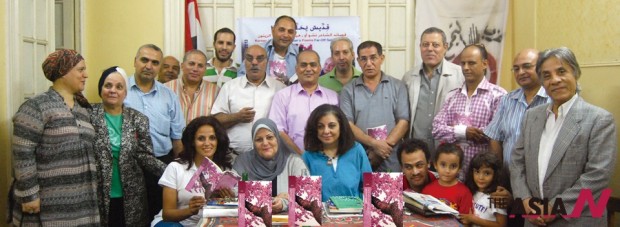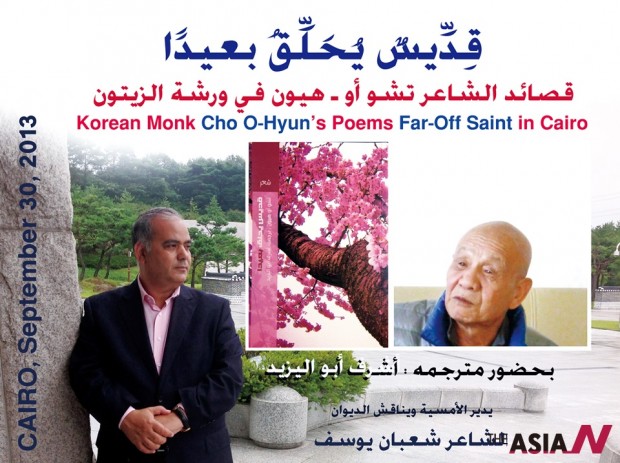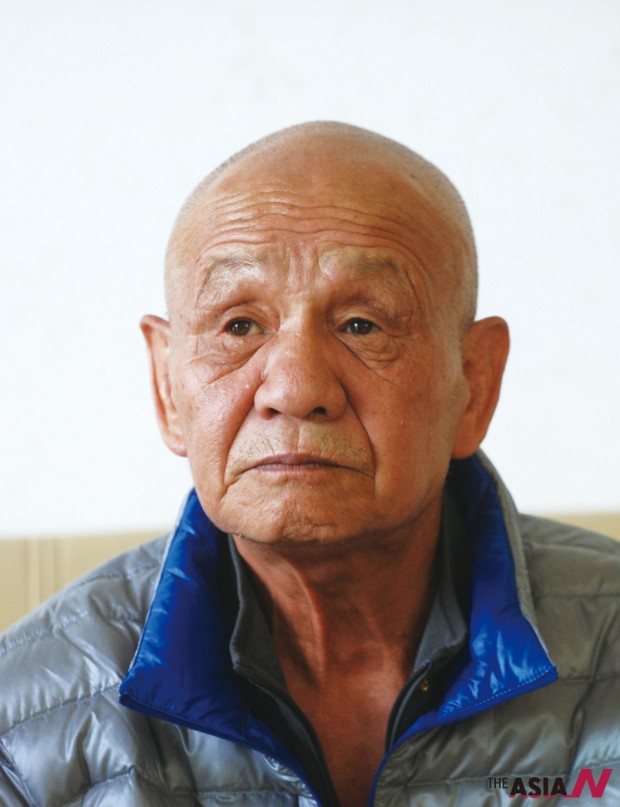Egyptian workshop on Korean poems
The very first question addressed to me was: “Why did you choose to translate the book of the Korean monk and poet Cho Oh-hyun?”
I was sitting surrounded by an elite audience of Egyptian writers, poets, novelists, critics and journalists. It seemed like a testing start, but I was keen to answer it.
“I do not consider myself a translator. I am introducing the literary worlds and works I am fond of to my readers. My particular interest of Korean literature is clear as I consider Korea my second home. I liked that book very much, and I wanted to show my love in a more substantial way by introducing it to Arabic language readers. I consider targeting the Asian culture a message I like to focus on. Let the Far East be our open door away from cultural dependency of the West.”
Visiting Korea seven times, I had the chance to know a little bit about Korean culture, more than most of the others sitting in the same room, as they did not have the chance to visit nor read any literary work from the Korean Peninsula.
“Visiting it was not enough; I read more of its ancient and modern history, its folk tales, and its modern poems and novels, as well. That was my attempt to understand the world of those writers and poets. I was lucky to meet Mr. Cho Oh-hyun before translating his poems. His rich and wise speech, deep thoughts, and fun spirit gave me the chance to understand the lines of his poetic book Far Off- Saint.”
The place that hosted our conference on Mr. Cho Oh-hyun’s poems was a wide hall of an old building flat, with high ceilings just like those historical palaces in the same area located east of the Egyptian capital Cairo. The informative bilingual signs of the unique event were hung on three huge walls. For decades, this place called “Warshat Az-Zaytoon,” translated as “Workshop of Zaytoon,” witnessed the faces of most literary figures in Egypt with their works discussed by academic and literary critics.
The main host and organizer is the well-known poet Sha’ban Yousef. He offered many critics the chance to read Mr. Cho Oh-hyun’s book a whole week before discussing it that last night of September.
Sha’ban said, “The poet is a monk who does not have any political or partisan affiliations; therefore the human aspect is expressing itself purely to a large extent, covered with mysticism and asceticism.”
The skilful poet Sha’ban Yousef mentioned in his paper about the spirit of the poetic translation and what it meant to him: “They are more than translation, and far beyond re-writing verses in Arabic, there is a new poem born.”
In his paper, Prof. Mohammed Ibrahim Taha focused on the philosophical implications of abstract paintings taken from the visual nature, “The poet relied on meditation to find the relationship between nature and the soul.”
Professor Taha also added when explaining the poet’s relationship with birds and animals that such signs were present in all poems, and they are a result of the Buddhist traditions and beliefs, which tell us to “treat those creatures as if they are human beings, then we must treat them with respect.”
Another vision was given by Prof. Hossam Aql. He also started by relating the Buddhist heritage to the texts he observed, “There is a sense of nothing-ism in the vicinity of the metaphysical and asceticism. A tough way of life is an essential feature in the Korean poet’s lines,” pointing out that the poet moves dynamically in inverse with the idea of narcissism and looks into small things in search of great objects.
Prof. Aql focused on the “expensive cost that the faithful and pioneers of change have to pay for the sake of humanity.”
Sense of nothingness
The novelist Osama Rayyan wrote on the difference between the “Monk” and the “Saint,” showing how “they both share appearances in the poems.” He appreciated the joy he got by reading the book, and valued the unique culture introduced by the translation.
Another novelist, Hussain Abdul-Rahim, commented on the papers read by referring to the texts of the Far-Off Saint to those of Sufi texts in Islamic and Arabic cultures. The poet Bashir Ayyad, in the same way, brought the experience of translating Al-Khayyam Persian verses into Arabic, and commented on the need to continue the translator task going east.
I was happy to sign the book for the workshop’s guests. The first edition of Far-Off Saint in Arabic was published in Muscat, Sultanate of Oman, April 2013, by Bait Al-Ghasham for publishing and translation, while the 2nd edition is coming out as a full section devoted to the unique work inside the only magazine of poetry published quarterly in Egypt, Shi’r, which carried the poet’s photo on its front cover. I also wrote about the book in the cultural monthly magazine of Al-Arabi in September 2013.
Mr. Mohammed Al-Shafey, Editor-in-chief at Al-Hilal Magazine, said he would be happy to “have sponsors for publishing a Korean literature monthly in Arabic, issued by the prestigious publishing house of Al-Hilal (almost 130 yrs old), for more and continuous Arabic readership of Korean literature, a project that could change many ideas of Korea in the Arab world.”
Mrs. Samya Abu-Zaid, Mr. Mahmoud Al-Shazly and I shared the reciting of Cho Oh-hyun’s poems, but the joy of their messages was shared by everyone who attended the event, which was also recorded and telecasted in the cultural radio program presented by Amro Al-Shamy in the Official Radio Station.




































































